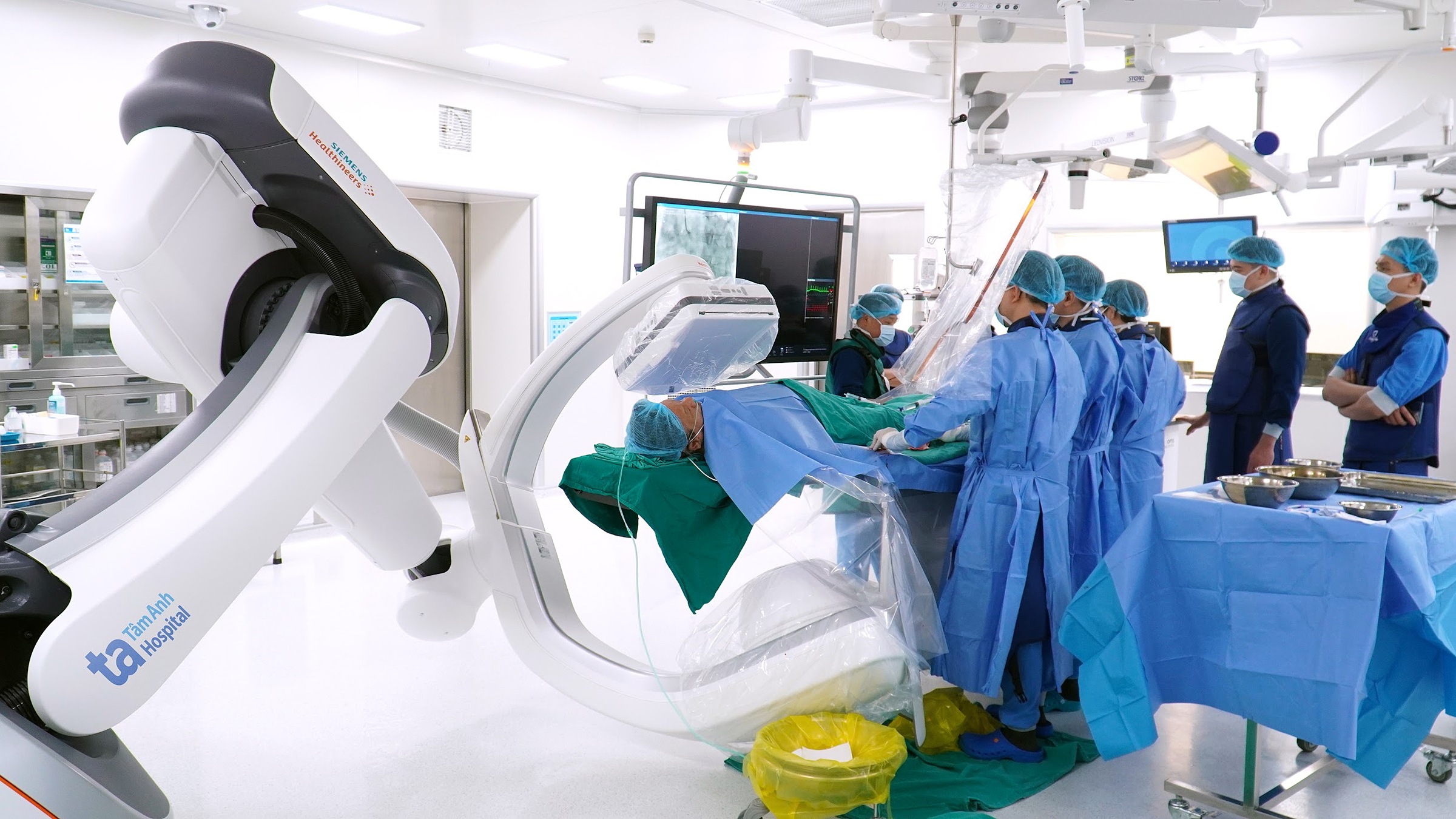Doctor Nguyen Hoai Vu, a cardiologist at Tam Anh General Hospital in Hanoi, reported that Hai also suffered from coronary artery disease, carotid artery stenosis, and had multiple risk factors for vascular disease, including family history, diabetes, hypertension, and dyslipidemia. Hai had experienced numbness and mild pain in his calves for 15 years, gradually worsening.
"Years of smoking is the main cause of his severe atherosclerosis," Dr. Vu diagnosed. He explained that toxins like nicotine and carbon monoxide damage the thin layer of cells lining the blood vessels, reducing their protective capacity. This allows fats like cholesterol to deposit easily, forming atherosclerotic plaques. Smoking also stimulates inflammation and constricts blood vessels, leading to blockages, heart attacks, or strokes. Prolonged smoking contributes to systemic atherosclerosis, increasing the risk of dangerous complications.
Given Hai's age, poor health, and underlying conditions, Dr. Vu determined that surgery carried a high risk of complications and would require extensive recovery time. Instead, he opted for stent placement to address the blockages in Hai's lower limb arteries. The procedure was divided into two sessions, a week apart. In the first session, a stent was placed in the common and external iliac arteries, and balloon angioplasty was performed on the left superficial femoral artery. The second session involved stent placement in the right common and external iliac arteries.
 |
The medical team performs stent placement. Illustrative photo: *Tam Anh General Hospital* |
After the procedure, Hai's leg pain subsided, and he was able to walk normally within a day. He recovered quickly, was discharged, and scheduled for follow-up appointments. Dr. Vu advised Hai to quit smoking to prevent further vascular damage and recommended walking for 30 minutes, 4-5 days a week to improve leg circulation. A balanced diet and regular exercise were also recommended to enhance his overall health and resilience against disease.
Atherosclerosis can lead to serious complications, including blockages, limb necrosis, heart attacks, and strokes. For prevention, individuals should prioritize early screening and regular health checkups.
Ly Nguyen
*The patient's name has been changed.
| Readers can submit questions about cardiovascular diseases here for doctor's answers. |












